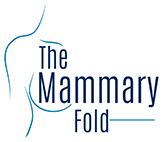MFAC Projects
Get involved with current MFAC led & supported projects.
Project Advice
If you would like advice or support from MFAC regarding a research project you are planning, please send mfac.research@gmail.com a copy of your project proposal. This should include details of the background/research question/importance, proposed methodology & potential outcomes/impact of the work.
Please include a short summary/covering letter about why you want MFAC support/input, what queries you have for the committee and how you envisage the project developing. Please note that whilst we aim to support and advise, MFAC committee members are not automatically assumed to be contributors or leaders of the project, and our degree of involvement will be determined on an individual project basis. We may invite you to present your project proposal at a committee meeting or suggest presenting your project at one of the ABS Academic & Research Committee sandpit sessions if appropriate.
Current Projects

Audit to quantify the VOlume of disease on axillary ultrasound in the axIlla, by assessing the cortical thickness and number of abnormal noDes, to support surgical management of the axilla
Why is this study important?
Breast units have different cortical thickness thresholds (2mm to >4mm) to determine if an axillary lymph node is normal or abnormal. This impacts on the number of women having an axillary lymph node biopsy test and the likelihood of picking up low volume axillary disease if a lower cortical thickness threshold is used. ABS guidance states that patients with isolated tumour cells (ITCs) and micrometastases in excised sentinel lymph nodes do not need further axillary treatment. In addition, in patients with 1-2 macrometastases who are receiving breast conservation with whole breast radiotherapy (and post menopausal T1, grade 1/2, ER+ and HER2-) further axillary treatment is not mandated. Consequently, axillary node clearance could constitute overtreatment for a significant proportion of patients undergoing primary surgical treatment.
Aim: To determine a national cortical thickness threshold for abnormal lymph nodes on axillary USS and help standardise practice across the UK
Objectives
1. Describe current clinical practice with regards to the ultrasound lymph node cortical thickness threshold required to prompt biopsy at different institutions across the UK.
2. Describe the association between cortical thickness threshold used and the volume of malignant lymph node disease found with axillary lymph node dissection.
Inclusion
All patients with a new diagnosis of primary invasive breast cancer (B5b) undergoing an axillary lymph node core biopsy. This includes patients having primary surgery, neo-adjuvant chemotherapy and neo-adjuvant endocrine therapy.
What do I have to do?
- Nominate a local unit lead for the audit and data collection. Each unit will be asked to collect information from 25 consecutive cases where the axilla has been biopsied in patients newly diagnosed with invasive breast cancer.
- Potential patients will be identified prospectively by the breast radiology department and data entry should occur on a weekly basis, following the MDT meeting.
- Simple demographic and procedure data will be contemporaneously collected for each participant and recorded in an anonymised format using a unique study identification number in a REDCap database
How do I get involved?
To register for the study, participating units are requested to email audit approval from the local Clinical Audit Department for the project prior to commencing data collection to nisha.sharma2@nhs.net and RedCap access will be granted.
What will I gain from participation?
All collaborators contributing a minimum of 10 complete data sets will be named as citable collaborators on resultant publications and can cite their contribution to a national ABS/MF supported audit

A multi-centre prospective cohort study looking at the incidence of malignancy in patients who present with unilateral nipple discharge and evaluating the sensitivity and specificity of the investigations used to investigate this common condition. Although there are ABS guidelines on how to manage patients presenting with nipple discharge, there is little good quality evidence underpinning current management. The data from this study will be used to create new national guidelines based on good quality data.
The target is 2200 data sets (figures based on pilot project results). Our interim analysis was presented at ABS in Bournemouth 2024 and we are now over half way to our target.
Why sign up?
- You will receive a certificate of participation as soon as you start submitting data
- Bronze, Silver and Gold certificates are also available for submitting data on 30, 50 or 100 patients
- You will be listed as a contributor for any publications
- This is a national study with the potential to change clinical practice and will allow you to demonstrate research capabilities in the new curriculum for your portfolio
What do I have to do?
- What do I have to do?
- Identify all women presenting with unilateral nipple discharge to the breast fast track clinic in your unit
- Collect data on these patients and upload it to RedCap
- Initially we ask for 1 month of data but collaborators can continue to collect data as able!
Get in touch!
Please email NUNDProject@gmail.com to get involved and/or find out more here
With thanks to the following sites, sites who have signed up but might not have anyone currently collecting data because the trainee has moved on. Please enquire via the email above to see if your unit is currently involved:
Aberdeen Royal Infirmary, Bart's Hospital London, Bournemouth, Cambridge, Countess of Chester Hospital, Craigavon Area Hospital, Doncaster Royal Infirmary, FIFE, Kings Mill Hospital, Kingston, Macclesfield General Hospital, East Cheshire NHS Trust, Maidstone and Tunbridge Wells, Ninewells Hospital, North Bristol NHS Trust (Southmead), North Manchester, Pinderfields Hospital, Poole, Portsmouth, Queen Elizabeth, Gateshead, Royal Bolton, Royal Cornwall, Truro, Royal Devon and Exeter, Royal Marsden Hospital, Royal Stoke University Hospital, Royal United Hospitals Bath, Royal Victoria Infirmary, Sandwells and West Birmingham Hospital, Sherwood Forrest Hospital, Southampton, Southend University Hospital, St James' University Hospital, Leeds, St Vincents, Dublin, St. Richard's Hospital Chichester, UHDB, University Hospital Llandough, University Hospital North Tees, Warwick Hospital, William Harvey Hospital, Winchester Hospital, Worthing
CI: Sarah Clark, Consultant Oncoplastic Breast and Skin Surgeon, University Hospitals, Dorset
PIs: Lisa Sheehan, Consultant Oncoplastic Breast Surgeon, Plymouth & Monika Rezacova, General Surgical Registrar, Wessex








